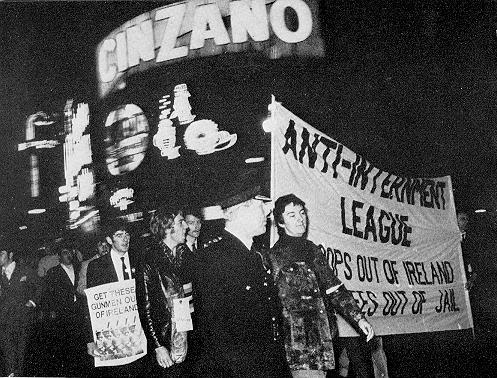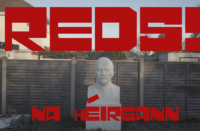This year is the 50th anniversary of the Anti-Internment League, founded in London after the introduction of internment in the North of Ireland in 1971.
The League, which brought together Irish and British left-wing campaigners, had two core demands: the immediate release of all internees, and the immediate withdrawal of British troops from Ireland.
On 9 August 1971 “Operation Demetrius”—internment without charge or trial—began, and it would continue until 5 December 1975, during which time 1,981 people were interned. Many of those interned were members of the Official and Provisional republican movements; the rest of the internees were political opponents of the Unionists, such as People’s Democracy, the Northern Ireland Civil Rights Association, and, in some cases, militant trade unionists.
During this period I attended an anti-internment march from Speakers’ Corner in Hyde Park to Trafalgar Square in central London, organised by the Connolly Association. I became involved with the Anti-Internment League in Southampton, which, along with the Young Communists, organised the picketing of British army recruitment centres.
On 18 February 1972 more than four hundred people attended an anti-internment meeting at Southampton town hall, addressed by James Wray, whose son Jim was killed on Bloody Sunday, and Kate Hoey. The secretary of the Anti-Internment League, John Grey, was presented with a cheque for £100 from Southampton Students’ Union.
The League became a mass movement, with trade unions and trades councils passing resolutions of support for the internees. Thousands demonstrated on the streets of Britain, demanding an end to internment and the withdrawal of troops from Ireland. With the start of the IRA bombing campaign in England the mass support slowly ebbed away; the British establishment must have heaved a sigh of relief.
There still remained a solidarity campaign of the far left, but the days of 20,000 in protest against British misrule were gone. Arguably it might have been better to concentrate on building broad political support among the British working class and to make Ireland an integral part of the left agenda in Britain.






